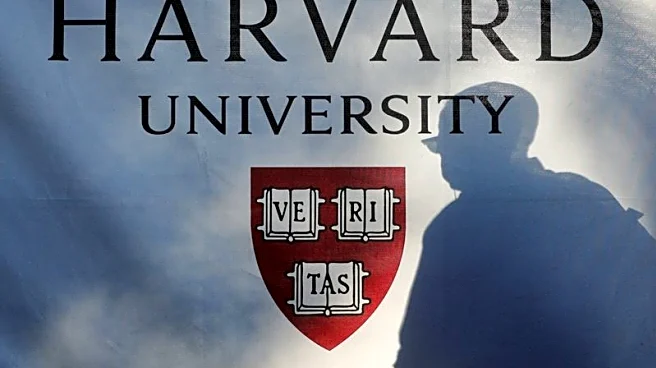What's Happening?
Laurene Powell Jobs, president of Emerson Collective and owner of a majority stake in The Atlantic, has criticized Marc Benioff, CEO of Salesforce and owner of Time magazine, for his comments supporting
the potential deployment of the National Guard in San Francisco. Powell Jobs accused Benioff of viewing philanthropy as an auction where policy is awarded to the highest bidder. Her criticism was published in a Wall Street Journal op-ed, where she argued that true philanthropy should focus on building and sustaining communities rather than exerting control. Benioff had previously stated that federal intervention would 'save' San Francisco, citing his significant financial contributions to the area.
Why It's Important?
Powell Jobs' critique of Benioff highlights the ongoing debate about the role of philanthropy in shaping public policy and community development. Her comments underscore concerns about the influence of wealthy individuals and corporations in determining policy outcomes, potentially prioritizing their interests over those of the communities they aim to support. This discussion is significant in the context of San Francisco's challenges, including homelessness and public safety, and raises questions about the ethical implications of philanthropic actions. The debate may influence how philanthropic efforts are perceived and managed, emphasizing the need for transparency and community-focused approaches.
What's Next?
The public exchange between Powell Jobs and Benioff may prompt further discussions about the ethical responsibilities of philanthropists and their impact on public policy. It could lead to increased scrutiny of philanthropic practices and calls for more community-driven approaches to addressing social issues. The situation may also influence how other philanthropists and organizations approach their contributions, potentially encouraging a shift towards more collaborative and inclusive strategies. As San Francisco continues to address its challenges, the role of philanthropy in supporting these efforts will likely remain a topic of interest and debate.
Beyond the Headlines
Powell Jobs' criticism of Benioff reflects broader concerns about the intersection of wealth, influence, and public policy. It raises questions about the ethical dimensions of philanthropy and the potential for 'moral laundering,' where benevolence masks self-interest. The debate may contribute to ongoing discussions about the need for transparency and accountability in philanthropic efforts, emphasizing the importance of building genuine partnerships with communities. This situation also highlights the cultural and ethical considerations involved in philanthropic actions, potentially influencing how future contributions are structured and perceived.










